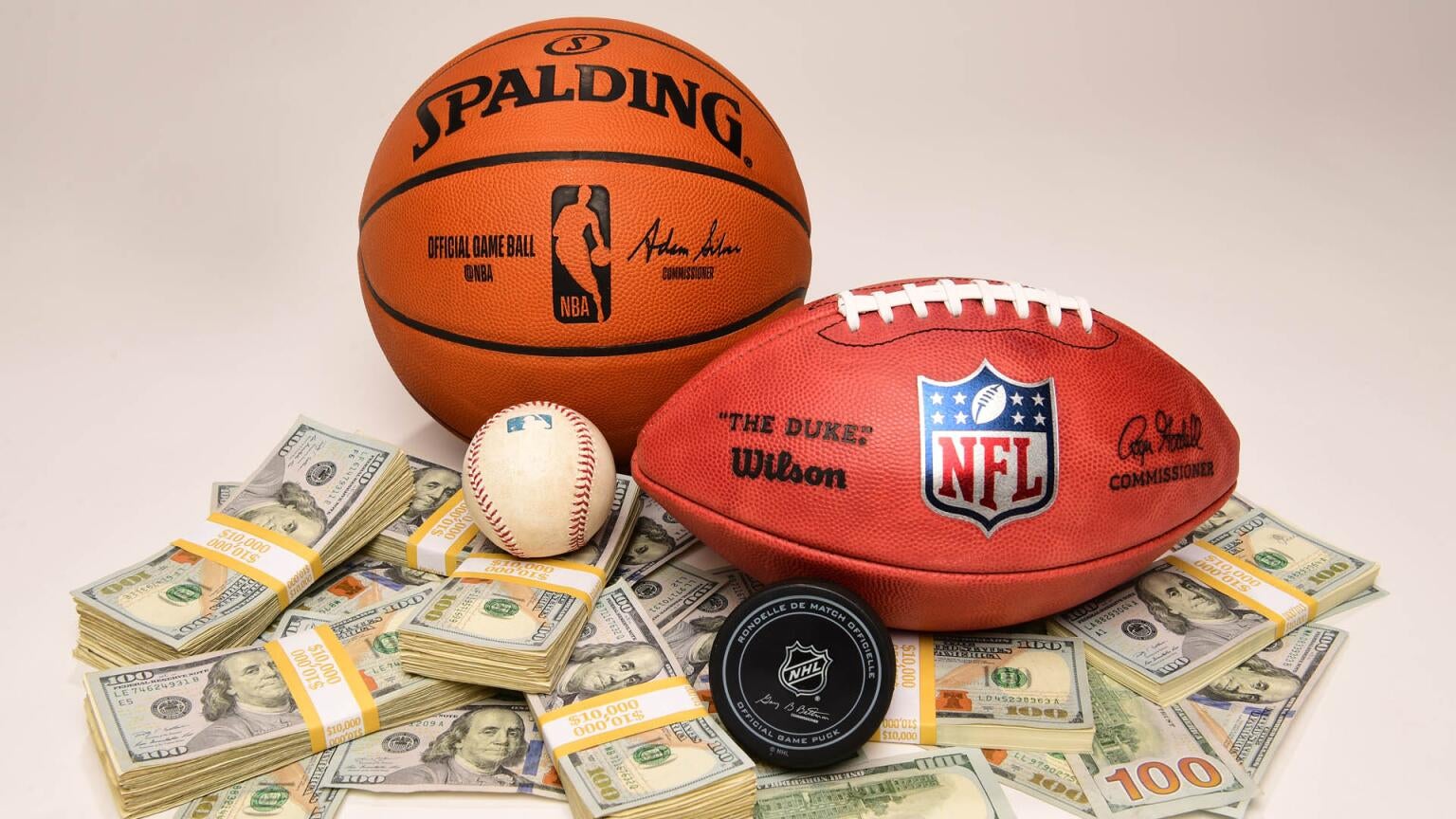Until Streamers Consolidate, Watching Live Sports Without Cable is Likely to Get Harder and More Expensive
With the escalating cost of sports media rights, there will likely be even more proliferation of rights, meaning fans will need to subscribe to even more platforms to watch.

Perhaps no other segment of the television industry will have to undergo more evolution than sports broadcasting. The cable model was tailor-made for live sports, bringing in wheelbarrows of cash for the teams themselves, and the providers who held the rights to show their games on TV.
- Warner Bros. Discovery and Disney CEOS David Zaslav and Bob Iger spoke about the challenges of offering live sports on Max and ESPN respectively.
- NASCAR announced it was splitting its rights between more partners this week, and more leagues will do likewise as the economics of streaming change the equation.
- For fans, this will lead to more confusion and lack of certainty regarding where they’ll be able to watch their favorite team next.
How Are Sports Broadcast Deals Evolving?

These days, the proliferation of streaming and the increasing pace of cord-cutting have legacy media CEOs trying to figure out how to reconfigure the model to make money off live sports in the future. Rights fees for major league sports have ballooned in recent decades; the NBA reportedly wants to get $75 billion in its next broadcast deal, even as its longtime broadcast partners ESPN and TNT want to pare back their NBA packages in the name of saving money.
The CEOs of the companies that own those channels (Disney and Warner Bros. Discovery, respectively) spoke a bit about the challenges that sports present nowadays at The New York Times’ DealBook Summit this week. WBD CEO David Zaslav — whose streamer Max first began offering live sports in October — said that while sports is a popular draw, it’s not like owning a big-name franchise that the company can do whatever it wants with.
“I love the sports business,” Zaslav said. “But the only product that we rent at Warner Bros. Discovery is sports. And when you rent a product, it’s always hard. When we do something great with ‘Lord of the Rings,’ it belongs to us. When we do something great with sports, we get to enjoy it and benefit from that until the deal is up. And when the deal is up, you get new rent.”
Iger, too, acknowledged the challenges of offering live sports in a shifting business model. His company is committed to launching an ESPN streaming service by 2025 that offers all the content fans can see on the linear ESPN channel, but there are myriad hurdles to clear before that becomes a reality.
“People love sports, and we have an unbelievably unique position in the world of sports,” Iger said. “We want to stay in that business. It is a healthy business for us today, and it will continue to be … But like our other businesses, it has relied on a business model that is not as robust as it used to be.”
Why Streaming Sports Will Get Harder Before it Gets Easier

The new NASCAR broadcasting agreement that will take hold in 2025 is a perfect example of where the sports broadcasting industry is headed. The auto-racing league will continue to partner with longtime allies NBC and Fox to broadcast Cup Series races, but it also carved out a selection of midseason races that will be distributed between Amazon and WBD.
For consumers, that means they’ll have to subscribe to Prime Video and potentially Max as well if they want to see the NASCAR Cup Series season in its entirety. A similar scenario is highly likely when the NBA’s new broadcast deal is agreed to, as that league has made it clear it wants to create a streaming package of games that it sells to a non-ESPN/TNT entity to ensure it gets the rights fee bumps that it wants.
It’s a pain for consumers, but for media companies and sports leagues, this is essentially the only way to harmonize the desire of broadcasters to pay less for live sports and leagues to make more money. Splitting rights among more providers ensures that leagues get the hefty rights payment increases they want, and allows network owners to conserve their dollars to reinvest in their streaming platforms as they continue to see less money coming in from their cable channels.
The NFL is forcing users to subscribe to Peacock to see Week 16’s game between the Los Angeles Chargers and Buffalo Bills, and there will be an exclusive wildcard game on Peacock as well. In the expert opinion of The Streamable, ports rights will continue to fragment as leagues try to make more while providers try to pay less, which will leave consumers stuck in the position of trying to find their favorite team’s games more often.
-
Max
Max is a subscription video streaming service that gives access to the full HBO library, along with exclusive Max Originals. There are hubs for content from TLC, HGTV, Food Network, Discovery, TCM, Cartoon Network, Travel Channel, ID, and more. Watch hit series like “The Last of Us,” “House of the Dragon,” “Succession,” “Curb Your Enthusiasm,” and more. Thanks to the B/R Sports add-on, users can watch NBA, MLB, NHL, March Madness, and NASCAR events.
-
Peacock
Peacock is a subscription video streaming service from NBCUniversal that includes original shows, blockbuster movies, and classic television series. Peacock is home to “Yellowstone,” and “The Office,” as well as original hits like “Poker Face” and “Bel-Air.” You can also watch live sports including NFL, MLB, WWE, Olympics, Premier League, NASCAR, French Open, College Football and Basketball, and PGA Tour. Premium Plus subscribers can stream their local NBC feed in all 210 markets.
-
Amazon Prime Video
Amazon Prime Video is a subscription video streaming service that includes on-demand access to 10,000+ movies, TV shows, and Prime Originals like “The Lord of the Rings: The Rings of Power,” “Jack Ryan,” “The Marvelous Mrs. Maisel,” “The Boys,” and more. Subscribers can also add third-party services like Max, Showtime, STARZ, and dozens more with Amazon Prime Video Channels. Prime Video also offers exclusive live access to NFL Thursday Night Football.



